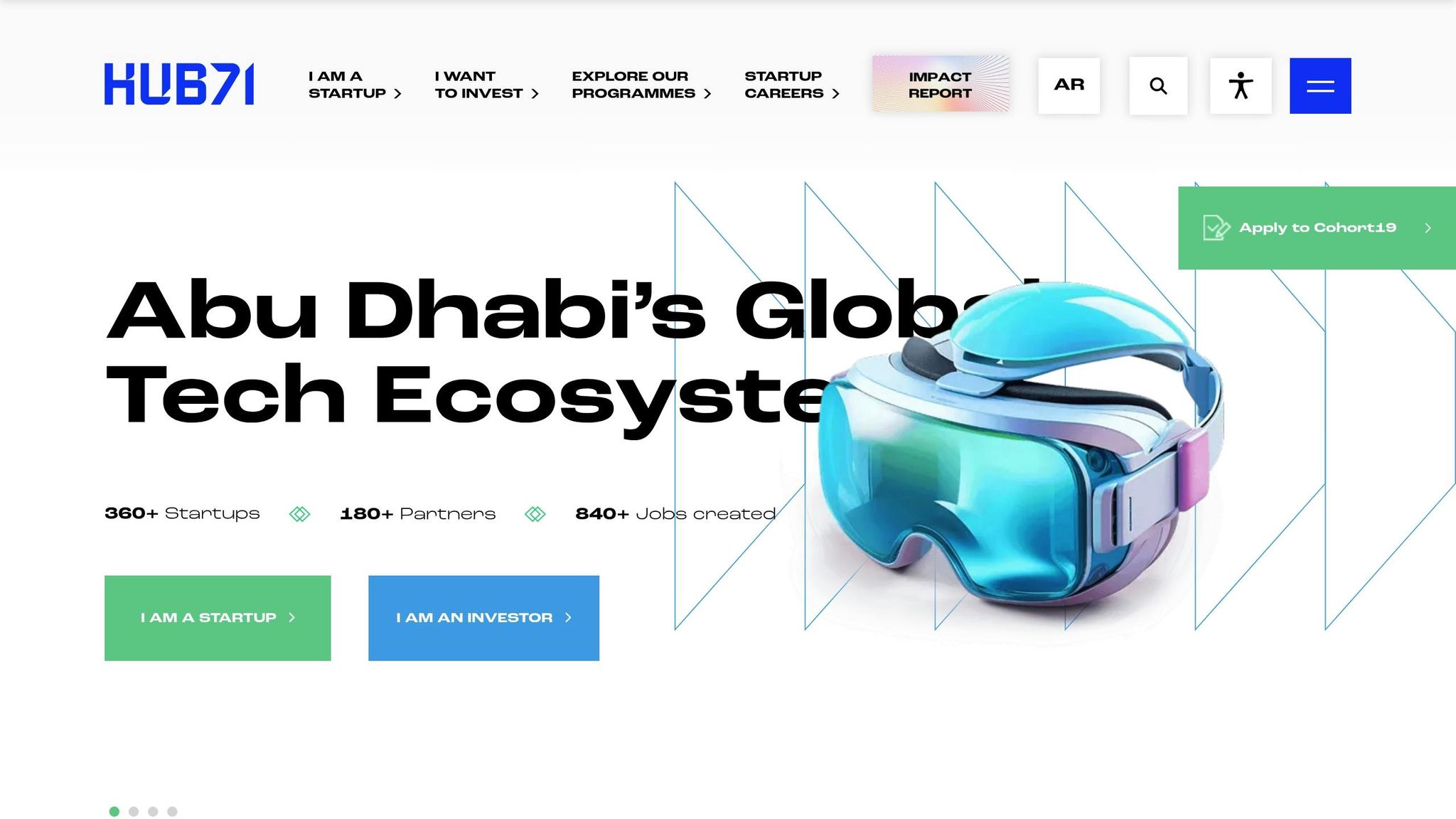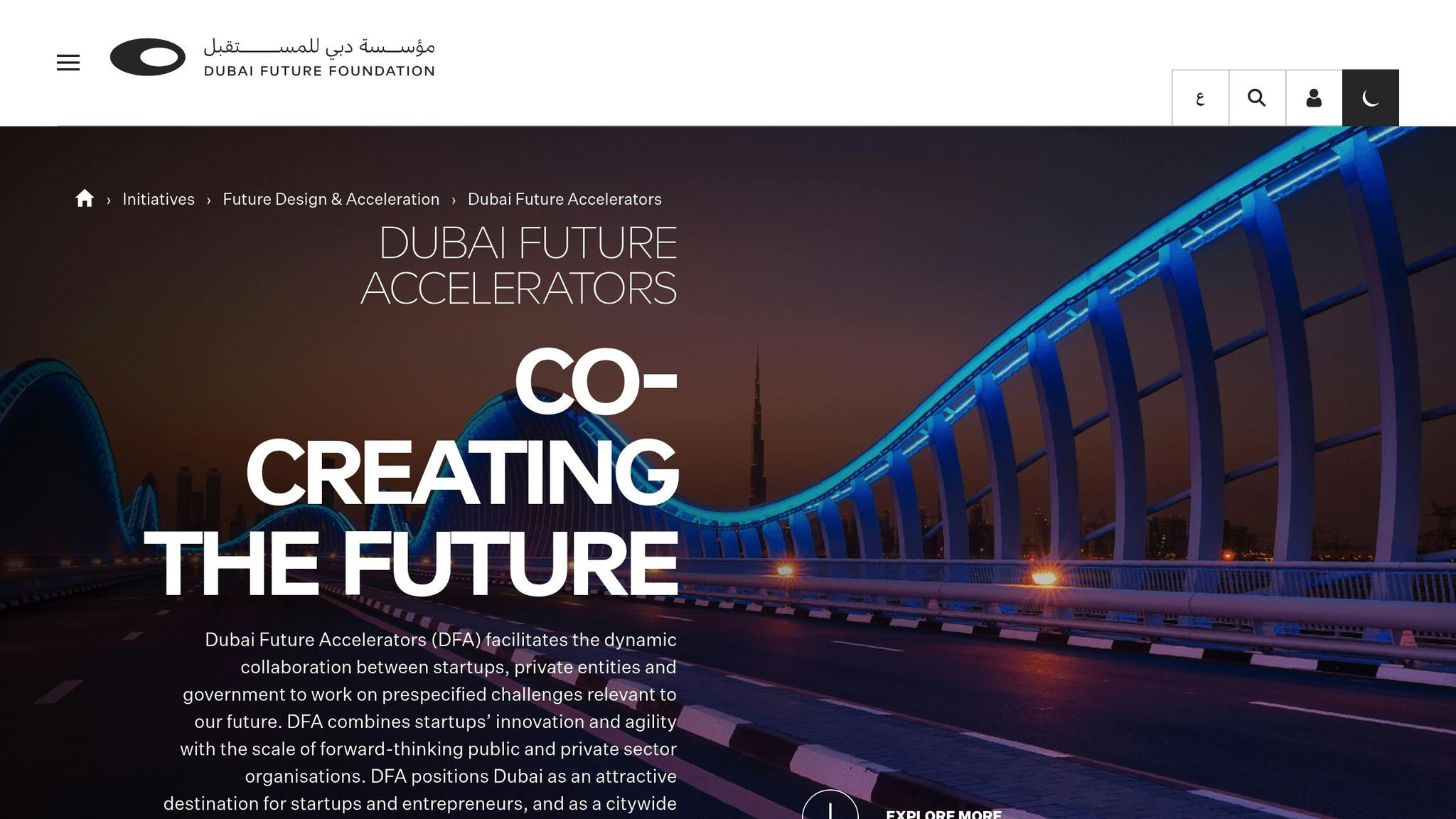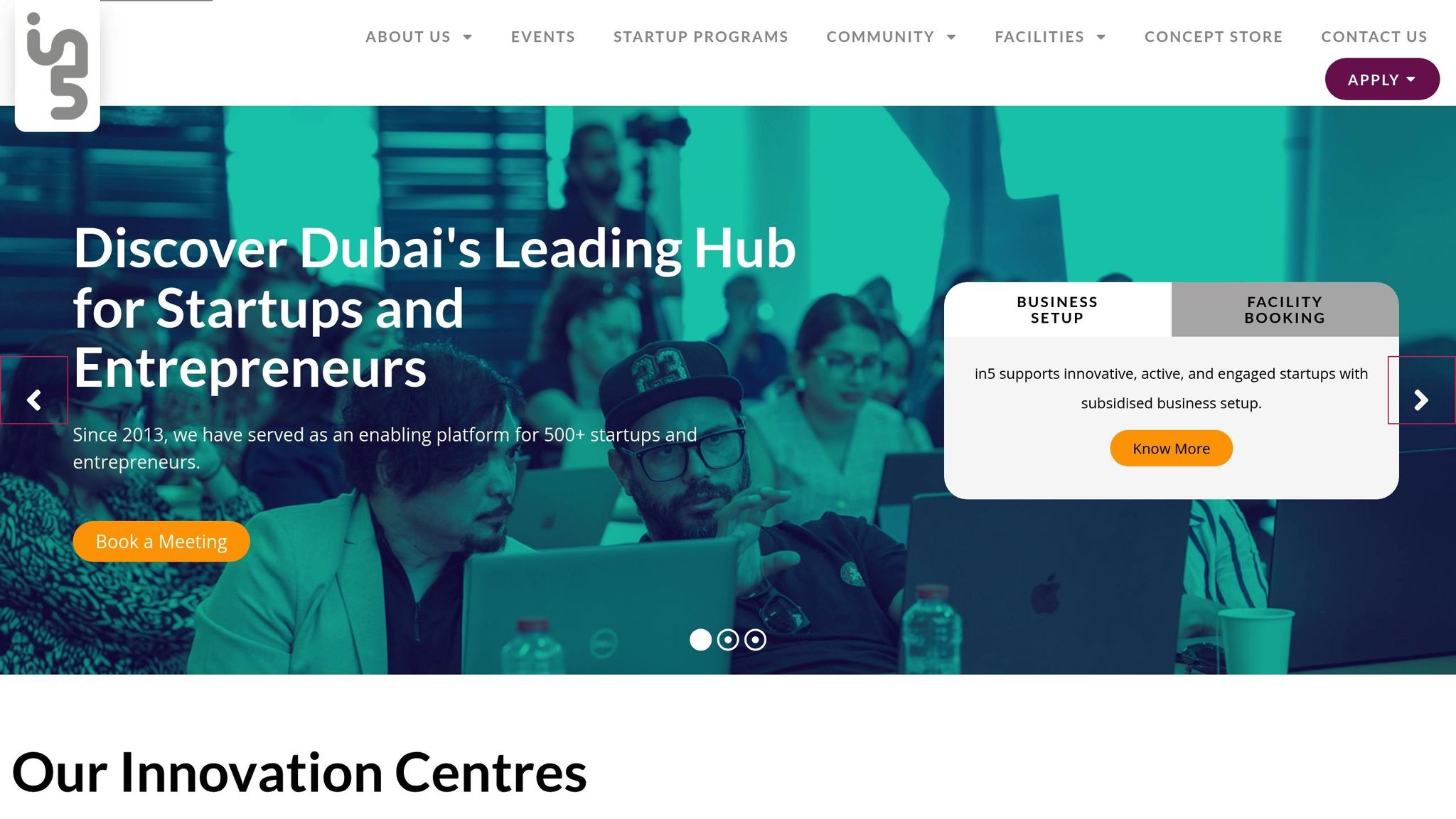
The UAE has become a global hotspot for startups, with incubators playing a key role in supporting entrepreneurs. These programs provide mentorship, funding, and networking opportunities, helping businesses navigate challenges like securing capital, understanding regulations, and attracting talent. Major incubators like Hub71, Dubai Future Accelerators, and In5 have helped startups such as Tabby, Derq, and Anghami scale and succeed regionally and globally. Despite challenges, such as funding gaps and regulatory complexities, startups leveraging incubator support are better positioned to thrive in the UAE's competitive market.
While the UAE boasts a vibrant startup ecosystem, entrepreneurs often encounter significant challenges that can slow down growth or even threaten the survival of their ventures. Recognising these hurdles is key for founders navigating a competitive market. These issues also highlight how strategic incubator support can play a critical role in overcoming them.
Raising capital remains one of the toughest challenges for startups in the UAE. According to recent data[1], the MENA region secured just AED 191 million across 37 deals in June 2025, marking an 82% drop from the previous month and a 55% decline compared to June 2024. Early-stage funding was particularly limited, with seed-stage startups receiving only AED 39 million across 11 rounds, while pre-seed funding amounted to just AED 18 million from eight transactions. Growth-stage companies faced even steeper challenges, with only one Series A deal recorded, valued at approximately AED 367,000.
Investor preferences have also shifted, with debt instruments making up 40% of the total capital raised. Female entrepreneurs faced additional hurdles, as six women-led startups collectively secured only AED 7.3 million. In contrast, mixed-gender founding teams attracted 45% of the total funding across just four deals[1]. These figures underscore the funding disparities and the need for targeted support to bridge such gaps.
Navigating the UAE's regulatory landscape is another significant obstacle for startups. Each emirate has its own licensing requirements, making it challenging for entrepreneurs to identify the jurisdiction that aligns best with their business model. While free zones offer benefits like 100% foreign ownership and tax incentives, they also come with specific sector focuses and unique criteria, adding another layer of complexity.
On top of licensing, startups must allocate resources to meet compliance requirements, such as adhering to labour laws and data protection regulations, which can divert attention from core business activities. Intellectual property (IP) protection, particularly for tech-driven startups, is another area that requires specialised knowledge, leaving many first-time founders at a disadvantage.
Startups in the UAE also struggle with attracting and retaining skilled talent, especially in competitive sectors like artificial intelligence, fintech, and other emerging technologies. Visa and employment regulations, including sponsorship requirements and salary thresholds, can make hiring international talent more complicated. Startups often find it hard to compete with the lucrative compensation packages and benefits offered by larger corporations, making retention an ongoing challenge.
Adding to the difficulty is the scarcity of qualified candidates in emerging technologies. This skills gap not only drives up recruitment costs but also prolongs hiring timelines, further straining startups’ resources. These challenges highlight the importance of incubators in addressing issues related to funding, regulatory compliance, and workforce development, providing startups with the tools they need to thrive in a demanding environment.
UAE incubators tackle startup challenges head-on, offering targeted solutions for funding gaps, navigating regulations, and finding talent. Here's how they make a difference:
To overcome regulatory and talent-related issues, incubators connect startups with seasoned mentors who’ve faced similar hurdles. These mentors provide insights on product development and market strategies, helping founders sidestep costly errors and fast-track growth.
Mentors are carefully matched to startups based on industry expertise, ensuring tailored advice. Many of these advisors are successful entrepreneurs who’ve built and scaled businesses in the UAE, or industry specialists familiar with the region’s unique market dynamics.
Support goes beyond advice. Mentorship includes one-on-one sessions, strategic workshops, and ongoing guidance. Incubators also encourage peer-to-peer learning, where founders share experiences and lessons. This comprehensive approach equips entrepreneurs with expertise in areas like legal compliance, financial planning, and market research, allowing them to focus on growing their businesses.
Funding is a common hurdle for startups, and UAE incubators address this through several avenues. Many programmes offer direct seed funding, giving startups the initial capital needed for product development and market validation. This early financial boost is crucial for getting off the ground.
Beyond direct funding, incubators open doors to a network of UAE-based investors, including angel investors, venture capital firms, and corporate backers. These connections help startups overcome funding roadblocks. Additionally, incubators help founders refine their investor pitches, financial models, and business plans, ensuring they’re well-prepared for meetings. Pitch training and mock sessions further enhance their confidence and presentation skills.
To expand opportunities, incubators often host demo days and investor showcases. These events allow startups to present their ideas to multiple investors, creating a competitive atmosphere that can lead to quicker decisions and better investment terms.
Networking is another area where UAE incubators shine, addressing the challenges of building relationships and finding talent. They create opportunities for startups to connect with peers, industry leaders, and potential collaborators.
Through events like workshops, meetups, and networking sessions, incubators foster meaningful connections in the UAE’s relationship-driven market. These gatherings also encourage cross-industry collaboration. For instance, fintech startups might partner with e-commerce companies, or AI firms could team up with logistics providers to explore new opportunities.
Community platforms extend these benefits beyond formal programmes. Initiatives like Founder Connects offer group masterminds, exclusive events, and curated access to investors. These platforms ensure that founders continue building valuable relationships and gaining insights even after completing their incubation journey.
The UAE's incubator ecosystem has been instrumental in turning innovative ideas into successful businesses across multiple sectors. These examples highlight how focused mentorship, funding, and strategic support can help startups thrive. Let’s dive into three standout stories that showcase this in action.

Tabby, a buy-now-pay-later fintech platform, is a prime example of Hub71’s impact. Through its programme, Tabby gained access to mentorship from seasoned fintech professionals in the region and built connections with key investors in the UAE’s startup scene. This support was crucial in helping the company overcome regulatory challenges and expand its operations throughout the Middle East.

Derq, an AI-powered road safety startup, demonstrates the value of Dubai Future Accelerators. By participating in the accelerator, Derq partnered with Dubai’s Roads and Transport Authority to pilot its traffic management solutions. This collaboration not only provided hands-on experience but also opened doors to funding and international opportunities in smart city projects. The programme’s direct engagement with government entities helped Derq tackle regulatory challenges and scale its operations globally.

Anghami, the region’s leading music streaming platform, benefited significantly from In5’s resources at Dubai Media City. The incubator offered mentorship tailored to licensing and expansion, which allowed Anghami to establish its regional headquarters and form strategic partnerships with major telecom providers. This support was key to the platform’s growth and regional success.
These success stories illustrate how customised support - whether through mentorship, government collaboration, or investor access - drives growth across industries, solidifying the UAE’s position as a global hub for innovation and entrepreneurship.
The success stories emerging from UAE incubators provide a clear roadmap for startup founders. These programmes have delivered measurable results - in5 has supported over 1,000 startups, collectively raising AED 7.8 billion, while Intelak boasts a 75% success rate among its accelerator graduates[2][3]. Such figures underline how strategic incubator support can significantly enhance startup survival rates, especially in a market where 80% of startups typically fail within their first two years[6].
Startups that thrive in the UAE make the most of every opportunity their incubator programmes provide. For instance, Intelak has facilitated over 1,800 hours of training and connected founders with more than 120 mentors, enabling them to fine-tune their business models and tackle market-specific challenges[2][4]. This structured mentorship is invaluable for navigating the complexities of the UAE market.
Founders should focus on three key strategies:
Majed Al Suwaidi of TECOM Group highlights the importance of adopting a global perspective and engaging with the community for sustained success[3].
The UAE’s tech sector is on a rapid growth trajectory. Tech investment is projected to rise by 145% by 2025, reaching $313.5 million, and startup funding is expected to grow from $638 million in 2023 to $2.5 billion by 2025[5]. Founders embedded in incubator networks are better positioned to seize these expanding opportunities, leveraging structured support to foster collaboration and innovation.
While incubator programmes provide a strong foundation, ongoing peer collaboration is equally vital for long-term success. The UAE’s startup ecosystem thrives on collective learning, especially as 58% of UAE startups are tech-driven, requiring constant knowledge exchange[5].
Platforms like Founder Connects address this need by offering tailored virtual masterminds, networking events, and curated investor resources. These platforms complement incubator efforts by providing continuous support after graduation, enabling founders to navigate real-time challenges with help from peers and industry experts.
Through live talks, exclusive events, and access to valuable resources, such platforms ensure that founders maintain momentum as they scale. This ongoing community engagement is especially critical in the UAE’s competitive market, where new challenges arise as startups grow.
The most successful founders combine the structured support of incubators with the dynamic benefits of community-driven platforms. By leveraging both, they set themselves up for success, following in the footsteps of companies like Tabby, which utilised these resources to achieve regional and global growth.
UAE incubators are instrumental in addressing the funding hurdles that many startups face. They bridge the gap by linking entrepreneurs with government grants, seed capital, and private investors. Beyond just funding, they offer mentorship, customised programmes, and connections to industry networks, all of which play a key role in improving the odds of securing financial backing.
These incubators also provide essential resources like operational support, training, and introductions to potential investors. By building strong ties with UAE startup investors and opening doors to growth opportunities, they enable startups to succeed in the competitive and dynamic UAE startup ecosystem.
The UAE's incubators are instrumental in guiding startups through the maze of regulatory and legal requirements. They provide tailored advice on licensing, compliance, and sector-specific rules, ensuring businesses can meet all necessary standards without unnecessary delays. These incubators also connect startups with seasoned legal and business experts to streamline the process further.
On top of that, the UAE has introduced forward-thinking initiatives like regulatory sandboxes, particularly in fields like AI and fintech. These controlled environments let startups test their ideas and solutions with reduced compliance risks. This not only encourages fresh ideas but also ensures that these innovations align with the country's legal frameworks. With this kind of support, startups can channel their energy into growth while handling regulatory challenges with confidence.
Startups in the UAE have a lot to gain by fully immersing themselves in the opportunities provided by incubators. These platforms offer more than just office space - they connect entrepreneurs with seasoned mentors, industry professionals, and potential investors, delivering personalised advice to tackle challenges and fine-tune growth strategies.
Through workshops, one-on-one mentoring, and forming strategic partnerships, startups can tap into essential insights and resources that pave the way for effective scaling. Many incubators in the UAE also open doors to funding opportunities, helping businesses thrive and innovate within the competitive UAE startup ecosystem.